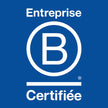BREASTFEEDING, YOUR CHOICE AS A YOUNG MOM
If for thousands of years the question of giving the breast or bottle to your newborn obviously did not arise, today you have the choice. To breastfeed or not to breastfeed will therefore be one of your first decisions as a young mother.
Perhaps you have been fixed for a long time already; Perhaps you are still hesitant and need to better understand what breastfeeding involves?
The important thing, for you and for your baby, is that you are calm in your thoughts and your decision. This is a deeply intimate choice that concerns only you and your spouse and which in all cases must be respected.
For most young mothers, breastfeeding is experienced as a natural extension of pregnancy.
Moreover, nearly 70% of French babies are breastfed upon leaving the maternity ward. This is certainly less than in Norway (where 98% of mothers breastfeed) but much more than in the year 2000 when, in France, only half of young mothers preferred to breastfeed.
Since then, information on the benefits of breastfeeding has multiplied, which undoubtedly explains this. With rare exceptions, all women can breastfeed their babies. Whether you are convinced or still hesitant, know that while breastfeeding can sometimes have some constraints, when it is done well and experienced with complete peace of mind, it is truly a source of benefits for you and your newborn.
Do not hesitate to ask your midwife or a lactation consultant to better support your decision.
FOR YOU AND YOUR BABY, A SOURCE OF BENEFITS
Your breast milk is undeniably and wonderfully adapted to the nutritional needs of your baby, especially as its composition changes as your little one grows and even throughout the day's feedings.
The WHO (World Health Organization) and the PNNS (National Nutrition and Health Program) even recommend exclusive breastfeeding until the child is 6 months old.
But even for a shorter duration, breastfeeding remains recommended because the characteristics of breast milk are not all transposable to commercially sold infant milks. To this biological reality is obviously added the privileged bond that is formed between mother and baby during this tender, nourishing body to body...
For your baby - Breastfeeding is for your baby the first factor in lasting protection of his health, the guarantee of benefiting from all the nutrients he needs to develop well.
Even if the exact composition of breast milk varies from one mother to another, it is in fact precisely dosed in lipids, proteins and carbohydrates and contains just the right amount of vitamins and minerals.
- Your milk contains numerous antibodies, it naturally protects your baby from the risks of infectious diseases (bronchiolitis, bronchitis, otitis, nasopharyngitis, etc.) but also from certain allergies, particularly food allergies.
- According to the latest studies, breastfeeding also plays a beneficial role on the child's weight, considerably limiting the risks of obesity in childhood and adolescence.
For you
- Breastfeeding with your baby close to you is a unique experience which not only facilitates the establishment of deep bonds between you and your child and which, between each feeding, offers you a feeling of well-being thanks to the release of hormones from the breast. same name.
- By causing uterine contractions, feedings help your uterus regain its size and tone more quickly.
- Various studies have shown that breastfeeding is a real asset for your health as a young mother: the risks of developing osteoporosis would then be much lower.
- By breastfeeding, you regain your figure more quickly, each liter of milk produced allowing you to burn around 800 Kcal.
- Finally, breastfeeding makes your life easier: no bottles to prepare, no powder to buy in a hurry on Sunday evening...
THE VERY FIRST FEEDINGS? BE REASSURED Are you convinced of the benefits of breastfeeding but, like all young mothers, do you have many questions about the onset and progress of lactation?
Rest assured, to make it easier to start breastfeeding, there are just a few things to know... Yes, you will have enough milk Lactation depends above all on your baby's demand.
It is in fact suction that triggers the start of the secretion of the two main hormones of lactation, prolactin and oxytocin.
Your breasts have been preparing to give milk since the beginning of your pregnancy, so have no fear: you will have milk.
And the more baby breastfeeds, the more you will have.
However, at birth and during the first 2 to 3 days, your breasts do not yet produce milk, but colostrum: this thick orange-yellow liquid has exceptional nutritional and anti-infectious properties.
It contains everything your baby needs for his first days, including all the antibodies that will protect him from the countless microbes he has encountered since leaving your womb!
During this very first period, it is therefore essential to offer the breast to your baby at every sign of awakening.
Let him nurse for as long as he wants and make sure his feedings are effective, checking that he swallows regularly.
It is these frequent feedings that will stimulate your lactation and cause the first flow of milk, 48 to 72 hours after birth.
Your breasts will swell, harden and become a little painful.
By putting your child to the breast as soon as your milk comes in, and very frequently during the days that follow, you will relieve your breasts and naturally start the smooth flow of lactation.
Yes, baby will find your breast When possible, your baby will be placed on your stomach immediately after birth and the very first feeding will take place within the first two hours of birth.
You will then see him spontaneously reach for the breast, crawling and turning his head left and right on your chest, until he grabs a nipple.
This reflex is perfectly natural for him because the olfactory secretion from your nipple is of the same nature as the amniotic fluid in which he has been bathed for these nine months.
Let him search freely, without holding his head or pressing it against your breast as he could then move backwards. Once he finds the breast, let him suckle as he pleases, for as long as he wants.
If a cesarean section or another complication prevents you from giving that first breastfeed so soon, don't worry: the nipple-seeking reflex will be just a little lessened and you will just need to gently guide your baby towards the breast and present the nipple in front. his mouth so he can nurse a little later.
Just as you will have trusted your little one to find your breast, you will do the same regarding the number of daily feedings. They vary from one baby to another.
On average, newborns require feedings seven to eight times per 24 hours, but some may require up to 12 feedings or more.
Trust your baby and simply respond to their needs, big or small!
IN DAILY DAY, ADOPT GOOD REFLEXES
Back home, you will gradually find your own way to continue breastfeeding as comfortably as possible, both for you and for your little one.
This nurturing relationship, however personal it may be, will benefit from taking into account these few tips: Get ahead of and respect your baby's wishes
During the first weeks, it goes without saying that you will remain close to your baby at all times.
So, offer him the breast each time he wakes up.
Don't wait for him to cry, but rather watch for signs that he wants to suckle: if he turns his head, lifts it, opens his mouth, sticks out his tongue or sucks on what he comes across, it's because he's crying. he is ready !
It is also your baby who will set the frequency and duration of feedings.
Give him this freedom without imposing any interval between you. Don't panic or get impatient if the feeding lasts 10 minutes or ¾ of an hour: there are babies who are quick and others who like to take their time....And if your little one is born full term and in good health , there is no point waking him up to nurse, even if he sleeps 6 hours straight or more!
Make yourself comfortable Of course, before each feeding, you will make sure to wash your hands well.
However, do not increase the number of hygiene procedures on your breasts: you would remove the antiseptic and olfactory properties of your nipples and your baby would be disturbed! One or two showers per day are enough.
Above all, pay attention to your comfort during feedings. They can last for several hours each day during the first months, and a bad position can cause significant back pain!
If possible, sit in a quiet place, either lying on your side, your baby in front of you, or sitting, with your back well supported on cushions and your baby lying in the crook of your arm or better, on a nursing pillow.
The more attentive you are to your comfort, the more this break will be a wonderful moment for you and your little one. Help your baby to position itself correctly Even if you have a preference, during the first weeks, systematically give both breasts to your baby, to properly establish your lactation.
Give him one breast until the end, then at the end of the feeding, offer him the other... which he will take or not.
And reverse at the next feeding. Pay particular attention to her position during breastfeeding.
During feeding, your baby should be positioned so that his face is facing the breast, his little mouth at the nipple, without him having to turn his head. So present the nipple in front of his mouth, ensuring that his head is tilted backwards.
Let him open his mouth wide and grab the breast on his own, making sure he grabs the entire areola and not just the nipple.
This is very important to avoid the formation of painful cracks but also to guarantee effective feedings. If your baby has a bad grip on the breast, gently remove it and then caress the furrow between his nose and his upper lip (the philtrum) with your nipple: by reflex, his mouth will open wide, which will allow you to return the breast to a better position.
Finally, make sure that his chin is firmly against the breast to clear his nose.
All you have to do is enjoy this sweet moment together, without imposing a time limit on either of you and without trying to find out how much milk he has swallowed.
Your little one knows his needs! After feeding, take care of your little one and your breasts If your baby doesn't fall asleep after feeding, place him upright against your shoulder and gently pat his back: he may need to burp!
If he has fallen asleep, you can put him back to bed without waking him up.
Also think about yourself after each feeding. By applying a specific breastfeeding balm to your nipples, you will effectively protect their delicate skin.
Check the effectiveness of your breastfeeding Don't worry, your instinct will warn you if your breastfeeding experiences difficulties! In the first weeks, always avoid giving a supplementary bottle: your milk supply could drop, your nipples may suffer from less stimulation and your baby, who may be a little disturbed, may then have difficulty suckling effectively. Different signs allow you to easily judge whether your feedings are going well.
This is the case when:
- During your feedings, your baby sucks eagerly and swallows regularly. Know that at the beginning, swallowing accompanies each sucking movement, then they become more spaced out as the milk decreases.
- At the end of the feeding, your baby, satisfied, releases your breast and falls asleep, his skin nicely pink and his muscles completely relaxed.
- Your baby's diapers are very wet, and he produces 4 to 8 golden-yellow, grainy stools every day during the first weeks. Subsequently, stools may become rarer, down to one or two per day or even less. As long as they remain soft and the diapers wet with urine, there is no problem with constipation.
-Your baby is gaining weight regularly. However, there is no point in weighing it daily, or even worse before and after each feeding: that would only make you anxious.
If your baby is in good shape, the monthly weighing at your doctor's office is more than sufficient.
However, if it reassures you, you can weigh it yourself once a week: more frequently, the weight variations would not be significant.
RIGHT ACTION TO PROTECT YOUR BREASTS
Breastfeeding is sometimes accompanied by minor discomforts. Anticipating them will allow you not to panic unnecessarily and above all to know how to react well so that feedings remain a shared joy.
So as not to be bothered by leaks During the first weeks of breastfeeding, it is common to observe a spontaneous flow of milk. This is the case, for example, when you hear a baby crying, if your baby has not breastfed for several hours or if you think of him, after sexual intercourse or during a strong emotion.
Rest assured, even if these excesses can be annoying, they are nothing to worry about.
Simply place a cotton pad in your bra to absorb them without worrying about them further.
To avoid cracks and cracks These cracks or cracks that all young mothers fear are often more common among women with light skin and hair.
They generally only appear during the first weeks of breastfeeding and can range from a simple irritated nipple to a bleeding crack, making feedings sometimes very painful...
But rest assured, the specialists are clear, they can easily be avoided by taking a few precautions:
- Do not strip the protective sebum from the skin of your breasts by washing too frequently!
One or two daily showers with a gentle cleansing gel are sufficient.
- Make sure your baby sucks in a very good position, facing the breast, mouth wide open and taking in the entire nipple.
- After feeding, dry your nipple and apply a specific breastfeeding repair balm.
- If cracks have nevertheless formed, leave your breasts in the open air as much as possible and regularly coat your sore nipples with a specific breastfeeding repair balm. To avoid suffering from engorgement This painful hardening of the breasts that we have told you about is absolutely not inevitable!
To avoid this, you should put your baby to the breast as often as possible.
And this, as early as possible because it is at the time of the first milk flows that engorgement is most common. If engorgement persists, you can manually induce the flow of your milk by grasping the areola between your fingers and then gently stretching it.
You can do this under a hot shower, which will facilitate the flow of milk.
If you can't do this, don't hesitate to use a breast pump until your breasts soften and become comfortable again. How to react properly in the event of mastitis Young mothers can sometimes feel significant and very painful swelling in one breast, which then becomes red and hot.
At the same time, fever, intense fatigue and diffuse pain can also appear... These symptoms, which are identical to those of the flu, are also those of inflammatory mastitis.
If you experience them, start by taking the following measures:
- Put your baby to the breast as often as possible, especially on the painful side.
- Really rest in bed, with your baby by your side. - Apply warm, damp towels to your painful breast, or on the contrary cold packs (wrapped in a cloth so as not to burn yourself) if this relieves you better.
- If you do not notice any improvement within 24 hours, consult your doctor, who will probably prescribe antibiotic treatment. Please note, however, that mastitis does not require stopping breastfeeding.




